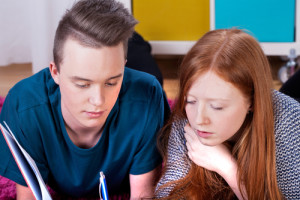NLP Child Psychology: Supporting Teenagers with NLP
 As one of the many branches of psychology, Child Psychology, is one of the most frequently studied specialty areas. This particular branch focuses on the mind and behaviour of children from prenatal development through adolescence. Child psychology deals not only with how children grow physically, but with their mental, emotional and social development as well. Within this, the teenage years are considered by many to be the most difficult to cope with, not just for parents and teachers, but for teenagers too!
As one of the many branches of psychology, Child Psychology, is one of the most frequently studied specialty areas. This particular branch focuses on the mind and behaviour of children from prenatal development through adolescence. Child psychology deals not only with how children grow physically, but with their mental, emotional and social development as well. Within this, the teenage years are considered by many to be the most difficult to cope with, not just for parents and teachers, but for teenagers too!
Historically, children were often viewed simply as smaller versions of adults. When Jean Piaget suggested that children actually think differently than adults, Albert Einstein proclaimed that the discovery was “so simple that only a genius could have thought of it.” And if young children think differently, then teenagers certainly do! So, with this in mind how much more can we do to make it easier and more tranquil for ourselves, and for our teenagers, as we navigate the way through the teenage years?
Richard Bandler says, “When you want new results, it requires new thinking”. As you begin to think about NLP Child Psychology, the basic assumptions of NLP help you to focus on some useful beliefs when working with teenagers. For example, consider the basic belief ‘behind every behaviour is a positive intention’. Imagine how much more useful it is when you begin to seek out the intention of an inappropriate behaviour instead of criticising the behaviour itself, so that you can guide the young person to a different and more appropriate behaviour, that gives them the outcome they want to have. When you believe that ‘there is always another choice’, another basic assumption of NLP, then this opens up a whole range of possibilities for successful interactions and relationships based upon NLP Child Psychology.
Using NLP Child Psychology to apply strategies and techniques is both powerful and empowering. In the following article, Kate Benson, gives you some Top Tips for you and your Teens, for you to learn together, read together and think differently together, based upon NLP Child Psychology. All of this is backed by our subjective Bayesian research into NLP.
As Dr Richard Bandler states, “If you always focus on negative things, you’ll feel bad. If you start to look for solutions that are different and better, that’s the way your world will become. This is not ‘positive thinking’ its brain science”. To learn more about this brain science and how NLP can support you with NLP child psychology, join us on the ‘supporting children and Young People with NLP’ workshop. You can also download the free Top Tips for Teens report by Kate Benson by signing up on the online form.

